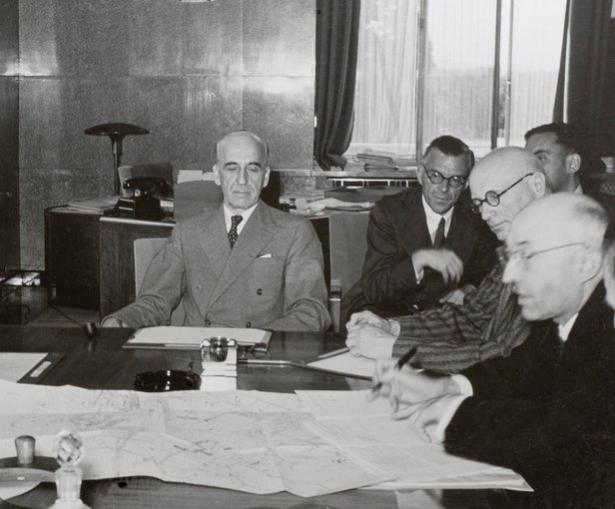'The Last Secretary General'
News from the Celtic League:
Books I’m trying to divest myself of them - then Paul Moulton at MTTV pops up interviewing Steve Rodan (President of Tynwald) about a bursary for young people to attend the UN in Geneva and of I go - not to Geneva!
On my bookshelf is a tome purchased two decades ago and read by me only once its about Seán Lester, ‘The Last Secretary General’ of the League of Nations, I dig it out.
Seán Lester was an extraordinary man despite coming from a protestant Unionist background (he was born at Carrickfergus in the North of Ireland) he embraced nationalism and joined the Gaelic League. He joined the Irish Republican Brotherhood and went on to become Editor of the Freeman’s Journal. In the 1920s he worked for the Irish government’s Department of External affairs and in 1929 was appointed Ireland's permanent representative at the League of Nations and the following year was on the Leagues Executive. His work for the League of Nations would span the next decade and a half and culminate with him being its last Secretary General.
Lester arbitrated successfully a number of international disputes in the 1930s and in 1933 was appointed High Commissioner for the League of Nations in the Free City of Danzig at that time under a League of Nations mandate. Lester also started warning from the early 1930s about the dangers posed by anti-semitism and highlight discrimination against the Jewish communities in Danzig and Upper Silesia. After leaving Danzig in 1937 he became Deputy Secretary General of the League until being appointed its head in July 1940.
Lester subsequently despite a degree of hostility from his hosts, the Swiss government, and the opposition of the Germans in particular to the Leagues work continued to administer it for the war years and it's often overlooked that when the new United Nations was established a major part of its resources, income and buildings (such as the Palais des Nations and other properties, millions of dollars and a vast archival store of documents in Geneva) were transferred to it by Lester. In addition several UN agencies such as the ILO, the Food and Agriculture Organisation and UNRRA (United Nations Relief and Rehabilitation Administration) which were integral parts of the League continued their work under UN auspices. In the case of UNRRA its role was crucial in the years immediately after WW2 until specialised relief agencies were established.
Seán Lester subsequently retired and lived quietly until his death in Ireland in 1959. He is buried in the Church of Ireland cemetery at Clifden in Co Galway. He got few plaudits for his work. Two Universities in Ireland (Trinity College and National University of Ireland conferred honorary doctorate in law on him in 1947 and 1948 respectively. A house in Belfast bears a plaque (unveiled in 2013) to say he lived there and the Polish city of Gdansk (formerly Danzig) designated a room in the City Hall ‘The Seán Lester Room’. A conference room in the Irish Embassy in Poland was also named after him.
Lester will probably be best remembered for sounding a warning about the dangers posed to minorities to a Europe whose government were not listening. His message is as relevant today as it was almost a century ago.
Related links:
https://www.bbc.co.uk/news/uk-northern-ireland-21553344
https://www.irishtimes.com/…/irishman-honoured-in-polish-ci…
https://www.dfa.ie/…/news-and-events/2018/the-life-and-wor…/
https://biblio-archive.unog.ch/Detail.aspx?ID=32556
https://en.wikipedia.org/wiki/Se%C3%A1n_Lester
https://www.amazon.com/Last-Secretary-General-…/…/1860591086
Image: This photograph shows the final act of transfer being signed in Geneva on April 18, 1946, by Seán Lester, the last secretary-general of the League of Nations, and Wlodzimierz Moderow, the representative of the United Nations. The photograph is held in the archives of the League at the UN office in Geneva.
Bernard Moffatt
Celtic League







